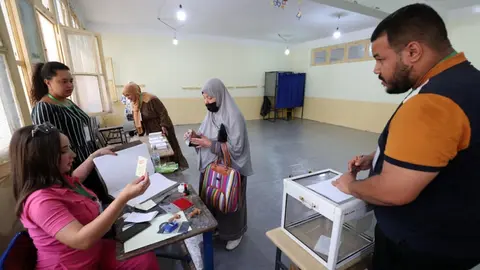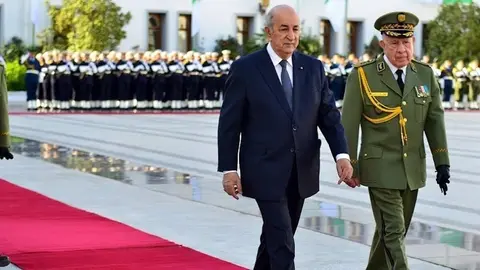Tebboune perpetuates his hold on power in Algeria with a second term in office
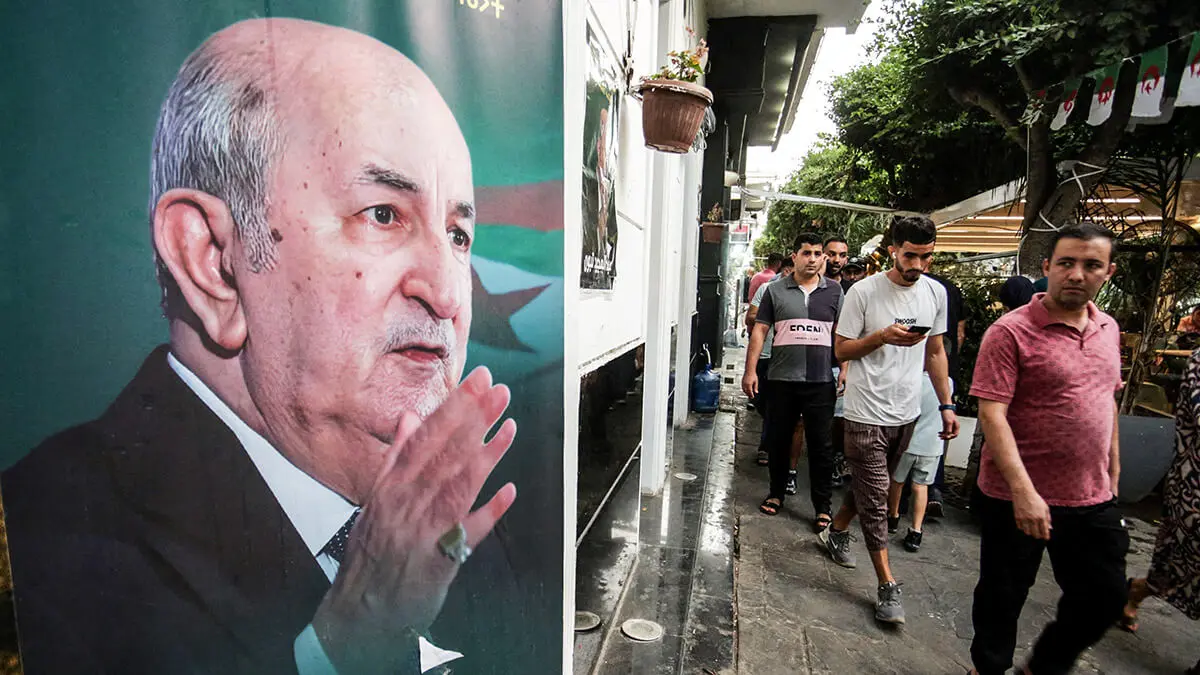
Algeria's President Abdelmadjid Tebboune will govern the country for a second term after his victory in the elections held last Saturday, which were once again marked by abstention. Despite political and media mobilisation, less than 6 million of the 24 million eligible adults voted, reinforcing the crisis of popular legitimacy of the political authorities.
Tebboune won a landslide victory of 94.7% against the rest of his opponents: the Islamist Abdelali Hassani Cherif, who won 3.2%, and the socialist Youcef Aouchiche, who won 2.2%, according to data from the country's electoral authority, ANIE.
The current president was the favourite to win the election and his re-election was assured, so his main goal was to increase voter turnout after a record abstention rate of over 60% in 2019.
Following that year's elections, Tebboune became president amid massive protests led by the Hirak movement. Once in power, he ordered an increase in political repression and hundreds of people were arrested.
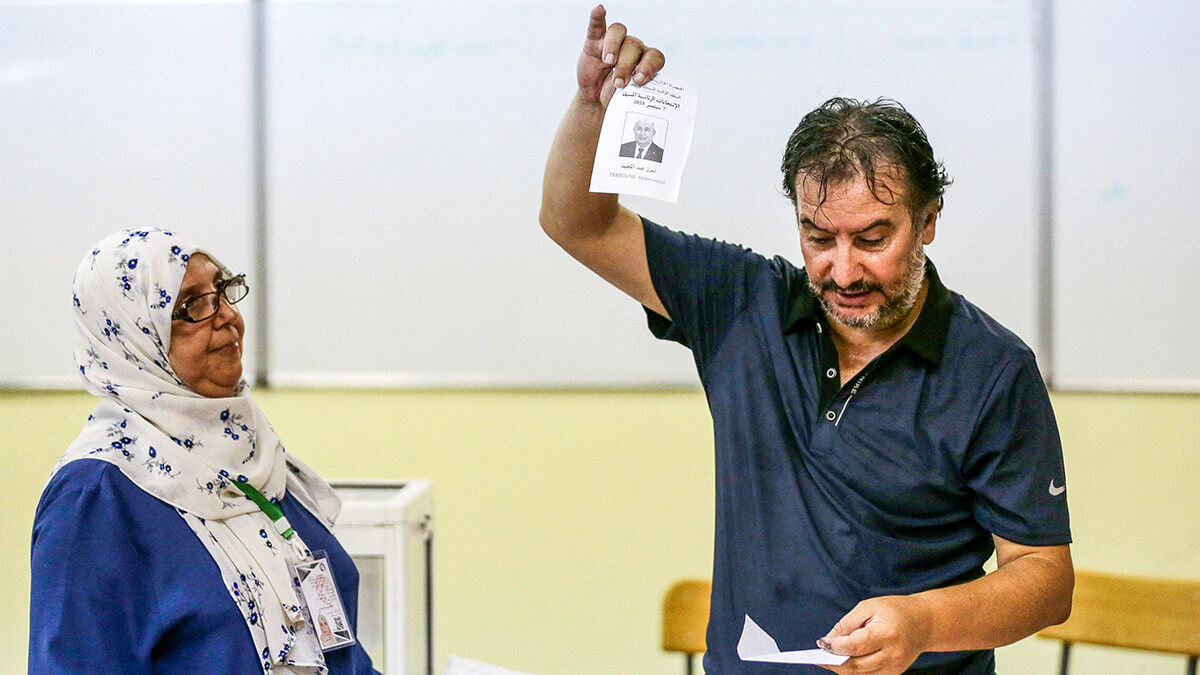
After polling stations closed on Saturday, the ANIE announced an ‘average turnout rate’ of 48% - but described it as ‘provisional’ - up from the 26% it announced hours earlier.
The three candidates, including Tebboune, issued a joint statement on Sunday night denouncing ‘irregularities’ in ANIE's results and adding that they wanted to raise public awareness of the ‘vagueness and contradictions in the turnout figures’.
The first official condemnation of suspicions of inflating and manipulating popular turnout data in the elections came from Muslim Brotherhood candidate Cherif, who stressed that the turnout figure was ‘bizarre’, denouncing attempts to ‘inflate the results’.
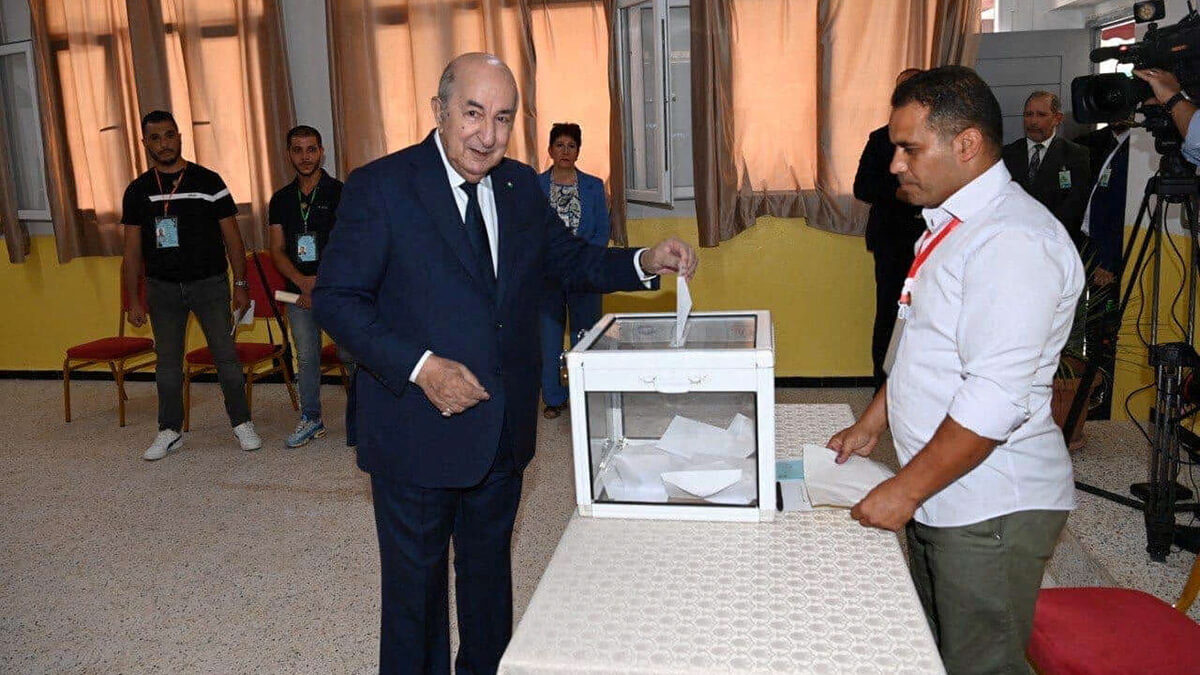
The statement criticises the ANIE's performance and its ‘unacceptable’ practices, highlighting for example the lack of control over media coverage of the candidates, referring to the bias recorded by some government media outlets that have come out in favour of Tebboune, who has mobilised his political, civil and media arm in order to consolidate his hold on power.
The Muslim Brotherhood party condemned what it described as the return of old practices that should have been overcome, such as pressure on some polling station supervisors to inflate the results or the lack of canvass reports to candidates’ representatives.
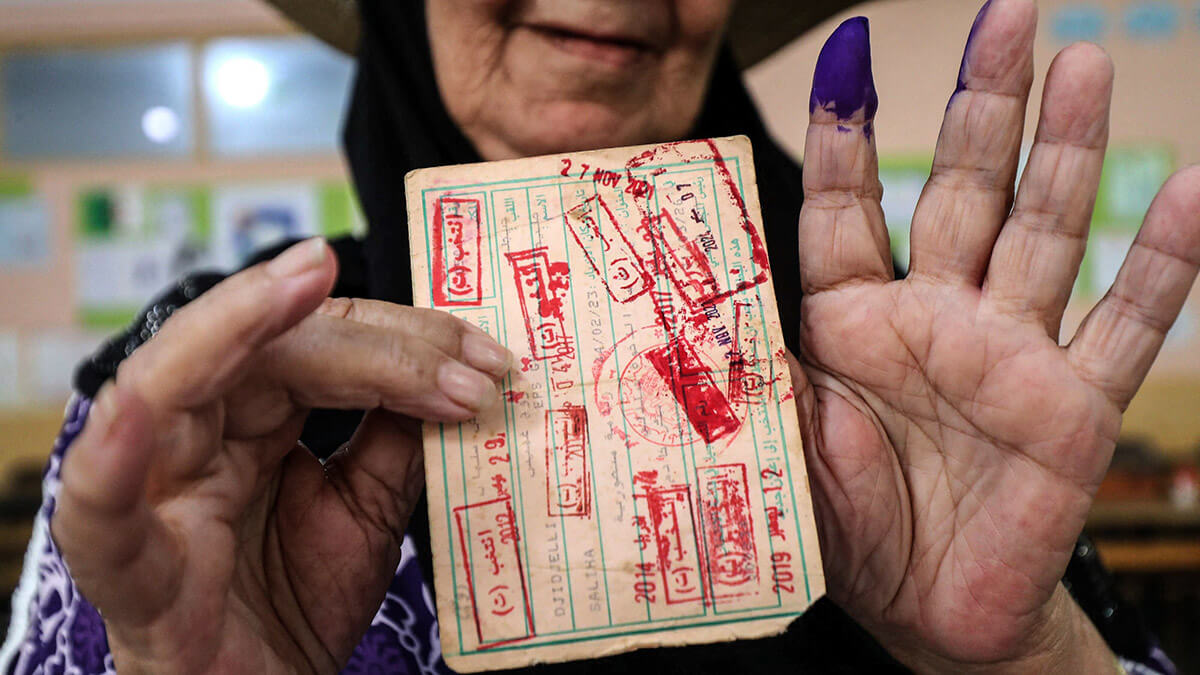
‘As we await the announcement of the provisional results, we affirm that we will assume our responsibility to the voters first and to the militants second. We will clarify all the conditions and circumstances surrounding the election process and its possible results, announcing an appropriate position on them,’ the Islamist party's statement explains.
For their part, Tebboune's supporters expressed their joy at the new victory of the president, who will have to continue to fight to win the confidence of Algerian society, especially the youngest.
The elections were held in the midst of strong social discontent caused by the economic situation, unemployment and increased political repression. Much of society is also critical of Tebboune's heavy dependence on Algeria's generals, who are increasingly influential in the government.

